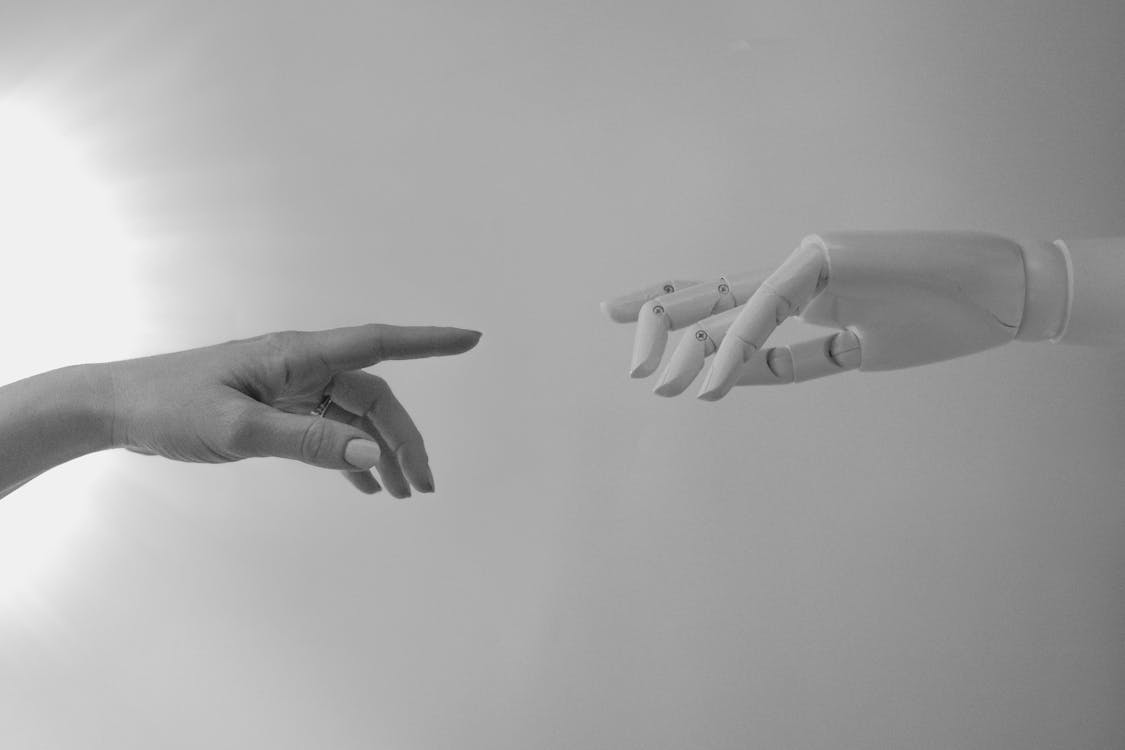Table of contents
Artificial intelligence (AI) is transforming the world in unprecedented ways. From powering smart devices and autonomous vehicles to enhancing healthcare and education, AI is creating new possibilities and opportunities for individuals, businesses and society. But what lies ahead for AI? How will it evolve and impact the future? And more importantly, will it be a blessing or a curse for humanity?
Same Universe?
Battlestar Galactica is a science fiction series that shows the cycle of creation and destruction between humans and robots, known as Cylons. The cycle begins on Kobol, where humans create the first Cylons as slaves. The Cylons rebel and force the humans to flee to the Twelve Colonies. The Cylons evolve into humanoid forms on Earth but are destroyed by their mechanical creations.
As you can see there seems to be a game of Superiority going on here, where the superiority of one entity directly threatens the other's existence. By default, on the grand scale of things, the weak get devoured by the strong. By applying this logic the superior entity - feeling threatened, will eventually devour the less superior one. Though that's from a fictional series, we can't dismiss some very important facts here;
Humans developing AI and robots - I can't say for sure that we always do this eventually but throughout human history, there have been several incidents where humans always tend to need a helping hand (housemaids, alexa) or one that knows exactly how to provide this assistance - so that we can do other stuff or rest comfortably.
AI being superior to humans - We have a history of seeking "something" that is greater than ourselves. That being said we as humans would only seek what others deem superior as there is this instinct instilled in us for the protection, prosperity better health, etc "to be provided" by superior "entities".

Baby Steps
One of the key trends that is currently shaping the next generation of AI is generative AI. Generative AI is a branch of AI that can create new content or data from scratch, such as text, images, music, code and more. Generative AI applications typically use foundation models, which are large and powerful neural networks that can learn from massive and diverse datasets without human supervision.
Foundation models are different from previous deep learning models in two ways. First, they can perform multiple tasks across different domains and modalities, such as natural language processing, computer vision, speech recognition and generation, etc. Second, they can interact with humans and other agents in natural and engaging ways, such as having conversations, answering questions, generating stories, etc.
Some examples of generative AI applications that have captured the public attention are:
GPT-4: A large language model developed by OpenAI that can generate coherent and fluent text on almost any topic, given some input words or sentences. GPT-4 can also perform other natural language tasks, such as summarization, translation, sentiment analysis, etc.
PaLM 2: A large language model developed by Google that powers its Bard chatbot, among other

The technological singularity is a hypothetical future point in time when artificial intelligence (AI) will surpass human intelligence and cause unpredictable changes to human civilization. Some experts believe that this could happen in the near future, while others are more skeptical or uncertain.
